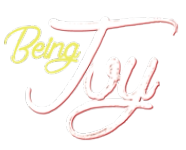

When you hear the word hope, how does it make you feel? Do you feel elated or do you write it off to just wishful thinking? What does hope mean to you?
Take a minute to really think about it. Because the way you define hope likely translates into the way you perceive everything that is occurring in your life. You see it acts like a barometer, measuring the amount of life pressure you allow in, to either lift you up or weigh you down.
But hope isn’t wishful thinking or optimism. It’s much deeper than that. It’s faith in something beyond your control. It’s trust. It’s a knowing. And to me, hope is about possibility.
During this month of April in which I’ve dedicated my weekly Joy Journals to helping you cultivate the joy habit of hope, I’ll be focusing on one major theme each week that begins with one of the letters in the word HOPE. This week’s offering stands for the letter “H’ and is all about helping you to be more hopeful about your health.
I know, we’re all tired of talking about COVID-19. And I promise that’s not what this blog is all about. I want to talk about health in a more holistic way, incorporating science and spiritualty so that you can be more hopeful about your health and wellbeing in the future.
If you look at my bookshelf, you’ll find plenty of books about wellness. Over the past few years, I’ve been devouring books about nutrition, energy healing, meditation, crystal therapy, plant medicine, and various other books on some of the new discoveries about the mind/body connection.
Here are a few that I recommend: (not in any particular order)
- Energy Medicine – Donna Eden
- Plant Intelligence and the Imaginal Realm – Stephen Harrod Buhner
- Crystal Muse – Heather Askinosie & Timmi Jandro
- Forest Bathing – Dr. Qing Li
- What are you Hungry for? – Deepak Chopra, M.D.
- Natural Health Natural Medicine – Andrew Weil, M.D.
- The Biology of Belief – Bruce H. Lipton, Ph.D.
- Human by Design – Gregg Braden
- Becoming Supernatural – Dr. Joe Dispenza
- There is a Spiritual Solution to Every Problem – Wayne Dyer
- The Possible Human – Jean Houston, Ph.D.
One of the books that I’m currently reading is a hot-off-the-press one by Sanjay Gupta called Keep Sharp – Build a Better Brain at Any Age. (I learned in the book that he is a neurosurgeon – only knew him as a chief medical correspondent on CNN throughout the pandemic coverage.)

As a “woman of a certain age” with a family history of Alzheimer’s, I wanted to learn more about the brain and what I could do to stay “Sharp” as I age. Because I intend to work for many more years to come, for me it’s a priority to reduce the risk of cognitive decline. My “hope for health” is growing ever stronger with each chapter.
Not only does Gupta explain in detailed but user-friendly language how the brain works, he also debunks some of the myths about dementia that I found empowering.
For example, one of the myths is that older people are doomed to forget things.
FALSE!
In fact, Gupta suggests that in some ways, aging enables us to get better at many things like managing stress and finding purpose – both important for brain function.
Or the false assumption that older people can’t learn new things. Yes, it may take us a little longer, but that doesn’t mean we can’t learn a new language, master a technical skill, or simply try something brand new.

As Gupta put it in his book: “The combination of memory being dynamic and the possibility of growing new neurons (neurogenesis) means we can continue to change our brain’s information, capacity, and learning strengths.”
His book even has a 12-week program for sharpening your brain by incorporating activities that balance the mind’s need for movement, purpose, rest, nutrition, and connection. Many of these things you may already be doing, but you’ll likely find some strategies to add to your daily routine.
So here’s my take-away.
Just because dementia runs in my family, doesn’t mean I should automatically assume that I will succumb to it. Reading this book is giving me a new-found hope and faith that I can actually do something about it. I see this as “hope in action”. Very empowering indeed!
As the French mathematician, physicist and religious philosopher Blaise Pascal put it, “In faith there is enough light for those who want to believe and enough shadows to blind those who don’t.”
I am a believer. Are you?
Here’s a little activity to activate your belief in hope.
If you’re over the age of 60, write your 30-year plan. If you’re under the age of 60, write one that’s even longer!
By envisioning a long, healthy life, you will be activating the force inside you that turns belief and hope into reality. And that my friend, is joyful living!
Love from your Joy Mama,
![]()
P.S. If you haven’t already read my book Being Joy™, it’s a simple 40-day practice of replacing old self-defeating beliefs with new empowering joy habits. As your vibrational frequency increases, you’ll not only experience more joy, but you’ll also be a beacon of hope for others who have forgotten their own joy. Please join me on this important mission by ordering your copy today!
If you enjoyed this post, you may also like these:
What happens to your joy when you worry?
Expect Miracles
Do you believe in possibilities?
Images courtesy of Pixabay.




This Post Has 0 Comments